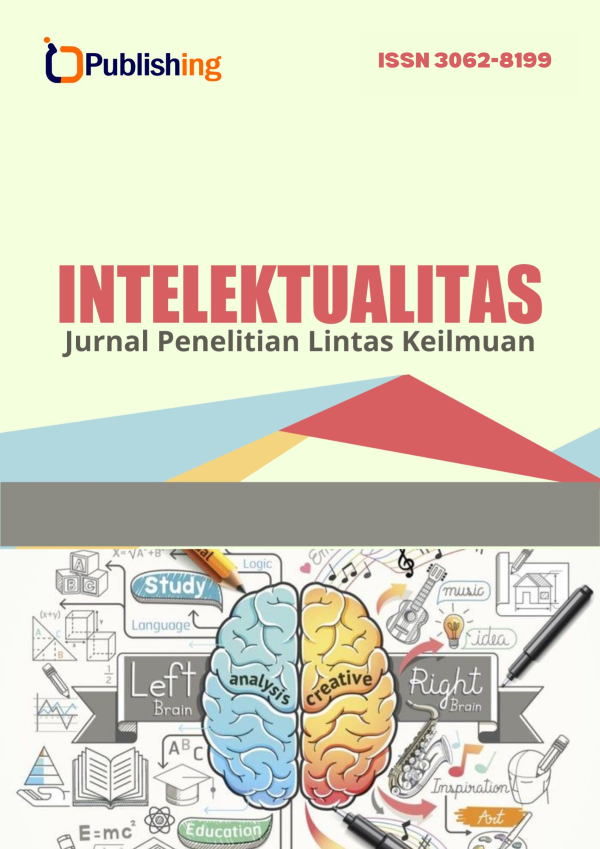Improving The Theoretical Foundations of Using The Pirls International Assessment Program In Educational Integration
DOI:
https://doi.org/10.47134/intelektualitas.v1i4.3921Keywords:
Education, Collaboration, Pedagogy, Technology, Literacy, Communication, Society, Mentality, DevelopmentAbstract
The significance of international evaluation initiatives, specifically the PIRLS (Progress in International Reading Literacy Study) programme, in raising educational standards is examined in this article. By evaluating primary school pupils’ reading and comprehension abilities, this program – which involves more than 100 countries worldwide – assists in determining the advantages and disadvantages of national educational systems. Additionally, the article compares research conducted by local scholars, historical pedagogical heritage, and international experiences, including creative approaches in Finland’s educational system. The PIRLS programme should be seen as an opportunity to enhance education rather than as a tool for teachers and students to control one another. This strategy is essential to bringing Uzbekistan’s national education system up to date with contemporary, global norms.
References
Alghowinem, S. (2024). Leading in the AI Era: An Interactive Experiential Hands-On Learning Approach for Professionals and Leaders. ASEE Annual Conference and Exposition, Conference Proceedings, ISSN 2153-5965.
Anas, I. (2022). Digital Language Teacher Professional Development from a CALL Perspective: Perceived Knowledge and Activeness in ECCR. CALL-EJ, 23(1), 1–21. ISSN 2187-9036.
Anderson, J. (2023). CHARTING PEDAGOGIES FOR COMMUNITY/HERITAGE LANGUAGE LEARNING WITHIN A MORE UNIFIED, PLURALIST VIEW OF LANGUAGE AND LITERACY EDUCATION. Community and Heritage Languages Schools Transforming Education: Research, Challenges, and Teaching Practices, 243–261. https://doi.org/10.4324/9781003302704-14
Berson, I.R. (2024). AI in K-12 Social Studies Education: A Critical Examination of Ethical and Practical Challenges. Communications in Computer and Information Science, 2150, 101–112. https://doi.org/10.1007/978-3-031-64315-6_8
Chen, C.C. (2022). Research issues of the top 100 cited articles on information literacy in higher education published from 2011 to 2020: A systematic review and co-citation network analysis. Australasian Journal of Educational Technology, 38(6), 34–52. https://doi.org/10.14742/ajet.7695
Cioc, C. (2022). A Model for incorporating information literacy and collaboration in a project-based learning pedagogical exercise with application to a fluid mechanics course. International Journal of Mechanical Engineering Education, 50(4), 955–977. https://doi.org/10.1177/03064190221081450
Decree No. PF-5712 of the President of the Republic of Uzbekistan dated April 29, 2019, on Approving the Concept of Developing the Education System of the Republic of Uzbekistan until 2030. https://lex.uz/docs/-4312785
Enriquez, G. (2024). Generative AI and composing: an intergenerational conversation among literacy scholars. English Teaching, 23(1), 6–22. https://doi.org/10.1108/ETPC-08-2023-0104
Fang, X. (2023). A systematic review of artificial intelligence technologies used for story writing. Education and Information Technologies, 28(11), 14361–14397. https://doi.org/10.1007/s10639-023-11741-5
George-Reyes, C.E. (2024). Digital Environments of Education 4.0 and complex thinking: Communicative Literacy to close the digital gender gap. Journal of Interactive Media in Education, 2024(1). https://doi.org/10.5334/jime.833
IEA – International Association for the Evaluation of Educational Achievement. https://www.iea.nl/data-tools/repository/pirls
Johinke, R. (2023). Reclaiming the technology of higher education for teaching digital writing in a post–pandemic world. Journal of University Teaching and Learning Practice, 20(2). https://doi.org/10.53761/1.20.02.01
Li, M. (2024). Embedding Digital Literacies in the Language Teacher Education Curriculum: Pre-Service and In-Service Teachers’ Perspectives. CALICO Journal, 41(3), 273–296. https://doi.org/10.1558/cj.25987
Macleroy, V. (2024). Grassroots policymaking in practice: including heritage languages in the critical connections project through agency, activism, and alternative voices. Current Issues in Language Planning, 25(5), 590–611. https://doi.org/10.1080/14664208.2023.2221151
Mammadova, T. (2023). Academic Writing and Information Literacy Instruction in Digital Environments: A Complementary Approach, 1–229. https://doi.org/10.1007/978-3-031-19160-2
Msweli, N.T. (2023). Transdisciplinary teaching practices for data science education: A comprehensive framework for integrating disciplines. Social Sciences and Humanities Open, 8(1). https://doi.org/10.1016/j.ssaho.2023.100628
Ng, D.T.K. (2023). Engaging students in virtual tours to learn language and digital literacy. Journal of Computers in Education, 10(3), 575–602. https://doi.org/10.1007/s40692-023-00262-2
Parker, J.L. (2024). Negotiating Meaning with Machines: AI's Role in Doctoral Writing Pedagogy. International Journal of Artificial Intelligence in Education. https://doi.org/10.1007/s40593-024-00425-x
Progress in International Reading Literacy Study (PIRLS). https://nces.ed.gov/surveys/pirls/overview.asp
Rajabova, K.F. (2024). Methodology for Developing Reading Literacy in Primary School Students Based on the PIRLS International Assessment Program. International Conference of Academic Sciences, 3(5), 10–18. Zenodo. https://doi.org/10.5281/zenodo.11124882
Rajabova, K.F. (2025). Opportunities for Using the PIRLS International Assessment Program in the Integration of Education. Pedagogical Skill - Bukhara, No. 2, 96–101.
Rajabova, K.F. (2020). Evaluating and Analyzing the Results of PIRLS International Research Monitoring. UNICEF & Ministry of Public Education of the Republic of Uzbekistan, Conference on “Improving the Quality of General Secondary Education: Content, Methodology, Assessment, and Educational Environment”, Tashkent, 578–581.
Rajabova, K.F. (2023). Opportunities for Using International Assessment Programs in the Integration of Uzbekistan’s Education with Finland’s Education. Education and Innovative Research International Scientific-Methodical Journal, No. 2, 244–251.
Sobirovich, T. B. (2024). Socio-Philosophical Analysis Of Society’s Ideosphere. Indonesian Journal of Social Development, 2(1).
Ting, Y.L.T. (2022). Tertiary-level STEM and EMI: where EFL and content meet to potentiate each other. ELT Journal, 76(2), 194–207. https://doi.org/10.1093/elt/ccab093
Turdiev, B. (2024). The Priority Of Human Interests In Uzbekistan’s Ideospheric Development. Теоретические аспекты становления педагогических наук, 3(15), 120–123.
Turdiyev, B. S. (2021). Cultural and educational development of society in the scientific heritage of world philosophers. Academic Research in Educational Sciences, 2(4), 443–451.
Yun, P.P.H. (2024). A reflection of the development of AI-supported pedagogies using the Lesson Study method. Implementing a 21st Century Competency-Based Curriculum Through Lesson Study, 186–201. https://doi.org/10.4324/9781003374107-13











